Patience (After Sebald) may well appeal to a different audience than An empty bliss beyond this world, or Persistent Repetition of Phrases, so if you didn’t quite get previous offerings it is well worth investigating this one, a sterling addition to the canon that continues The Caretaker’s trend of applying his formula in new ways.
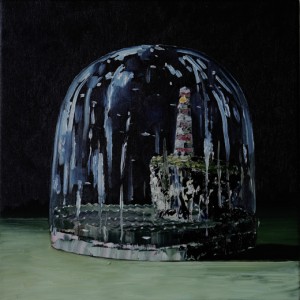
Patience (After Sebald) :: It might seem superfluous and repetitious to yet again attempt to describe the sonic aesthetic of James “Leyland” Kirby’s The Caretaker project, given the amount of critical acclaim and press attention heaped upon his back catalogue already, not to mention having waxed euphoric about several prior releases right here. But in the case of Patience (After Sebald) there’s good reason to, as both the mood and working methods are markedly altered, the selected source material pertinent to The Caretaker’s style in entirely new ways.
First off, it was composed as a soundtrack to Grant Gee’s documentary film of the same name, which traces the route taken by renowned contemporary German writer W.G. Sebald in what is considered his finest book The Rings Of Saturn via a long walk through coastal East Anglia. Secondly, Kirby has eschewed the ballroom and dance hall 78s of his previous releases and instead sourced his samples entirely from Franz Schubert’s 1827 song-cycle for piano and voice, Winterreise. Much of Sebald’s work relates to the themes of memory, memory loss and decay, often blurring the lines between fact and fiction, whilst the Winterreise focuses on the concepts of loneliness and unrequited love, and as such, both parallel and complement the concepts and signature sonic aesthetic of The Caretaker’s output perfectly. This has a profound impact on the structure, mood and tone of the album, and stripped of the whimsy of The Caretaker’s traditional source material, ‘Patience (After Sebald)’ is a far more solemn, earnest affair.
Kirby applies his trademark smudging, de-tuning, time-stretching and vinyl crackle to piano and queasy vocals, the treatments frequently rendering the piano quite differently, morphing into church organ or echoing synth, while the vocals are bent, slowed or reversed into almost operatic arias. The results are as characteristically graceful and ethereal as any of The Caretaker’s previous offerings but, as is often the case with soundtracks, it isn’t long before the shortcomings of listening to it in isolation become apparent. The traces of Schubert Kirby has collected often consist of little more than a few bars of subtly processed solo piano segments that are consequently far more repetitive than the looped, waltzing melodies of previous albums, and without the impact of Gee’s visuals, occasionally become actively grating.
Fortunately Patience (After Sebald) peaks more than it dips, and where one snippet of Schubert doesn’t quite click the first time around, Kirby often re-uses it with significantly different processing, slowing or time-stretching it to create fuzzy, smeared memories of the original. Take “I have become almost invisible, to some extent like a dead man,” for example: there’s only the mildest sheen of hiss over the top of the piano melody, as of rain heard outside, almost a looped field recording, whilst the same sample used in the very next track “In the deep and dark hours of the night” works far better for being significantly slowed and mired in a thick sheet of white-out distortion. In fact it is from this point on that Patience (After Sebald) is at its most engaging, taking on the haunted, memory-dislodged qualities of The Caretaker’s best material as ever more varied post-processing techniques are thrown into the mix.
“No one knows what shadowy memories haunt them to this day” throws the first prominent use of vocals into the melting pot, the piano shimmering as if seen through teary eyes, “Increasingly absorbed in his own world” features a longer snatch of Schubert and delicate vinyl crackle, taking us back to his original formula for a few precious minutes, “Isolated lights in the abyss of ignorance” echoes and bounces off walls, a mysterious clattering in the background together with running water hiss, and the slow motion keys of “Now the night is over and the dawn is about to break” closes the album on a high with chilling, operatic vocals.
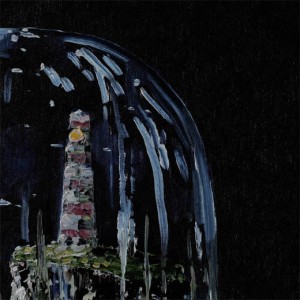
Extra Patience (After Sebald) :: Continuing the tradition of bolstering his latest stream of releases with supplemental material available to download or stream (particularly for those who purchased the 2011 digital subscription) The Caretaker has gone a step further this time, issuing an additional mini-album of sorts simply entitled Extra Patience (After Sebald). Extending the experience by a further twenty-four minutes spread across nine completely new tracks, this generous bonus is in some ways more successful than its parent release. It isn’t exactly more of the same either, displaying a greater emphasis on the reversed, reverbed and time-stretched vocal extracts from Schubert’s work in a manner that recalls Akira Rabelais’ magical Spellewauerynsherde on Samadhisound, particularly the backwards “Of grace and providence” and “Sebald.”
With each track generally pitched between the one and three minute mark (with two notable exceptions), the looped samples never overstay their welcome, as is sometimes the case on Patience (After Sebald) and one wonders what the album might have been like had the duration of it’s longer tracks been slashed in half and these tracks mixed in to create a 21 track opus instead. “Everything is on the point of decline (again)” opens the album as successfully as the original version, the simple act of reversing the piano loop on “A golden pheasant on a black ground” and “The Quilter Standard” is surprisingly effective as they end up sounding unnervingly familiar, and “After the earth has ground itself down” is only distantly heard echoing down cold, subterranean stone corridors.
Patience (After Sebald) may well appeal to a different audience than An empty bliss beyond this world, or Persistent Repetition of Phrases, so if you didn’t quite get previous offerings it is well worth investigating this one, a sterling addition to the canon that continues The Caretaker’s trend of applying his formula in new ways.
Both releases are available on History Always Favours The Winners. Buy at Amazon.






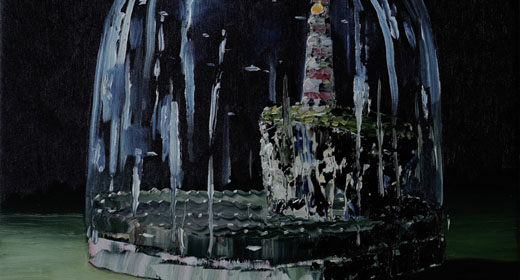

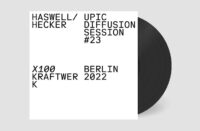
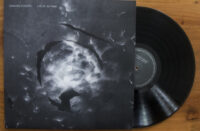

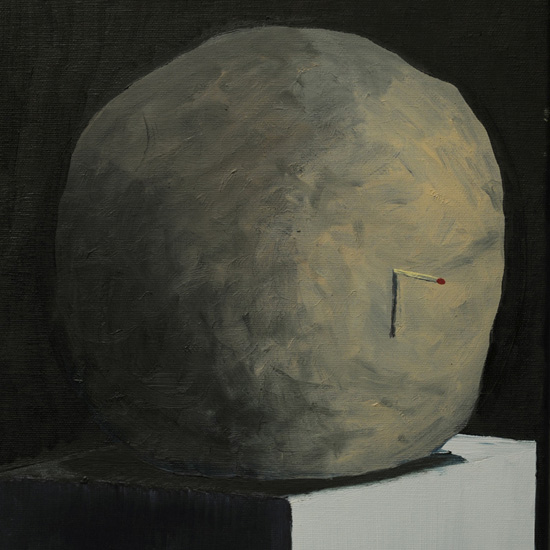
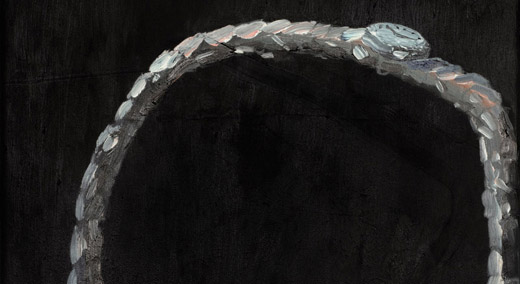
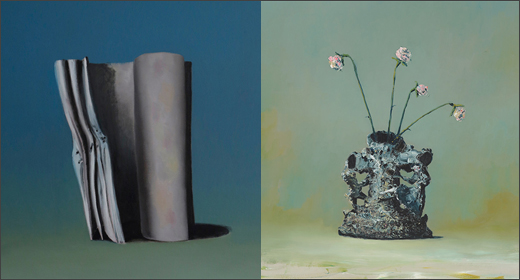


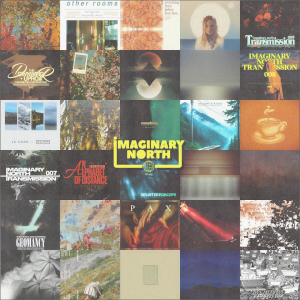

![Romanowitch :: A critical season substitute (glitch.cool) — [concise]](https://igloomag.com/wp/wp-content/uploads/2025/03/romanowitch-a-critical-season-substitute_tape_feat-75x75.jpg)








